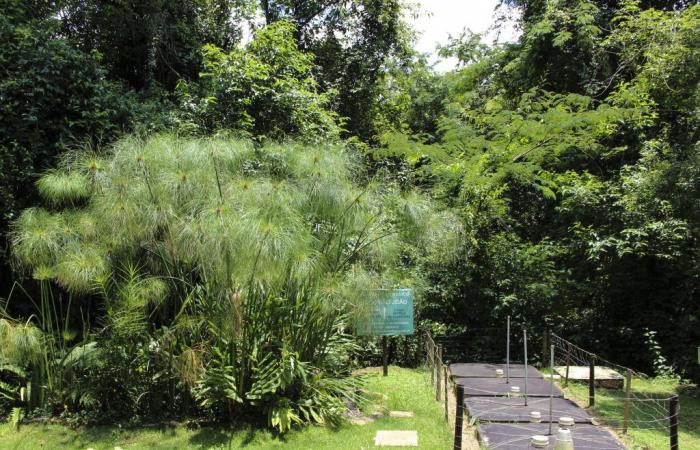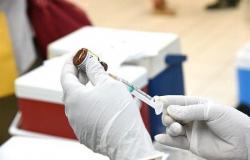Embrapa and the National Rural Learning Service of the State of São Paulo (Senar) sign on Monday, the 29th, at 10 am, a technical cooperation agreement with the purpose of implementing social and communication technology transfer actions to promote basic sanitation in rural areas in the state of São Paulo. The partnership will be formalized at Embrapa’s stand at Agrishow with the presence of the presidents of both institutions, Silvia Massruha and Tirso Meirelles. The stand is located at E14a1. The cooperation will contribute to expanding the adoption of the sanitation system in the state of São Paulo, enabling the preparation and review of booklets, the training of instructors with the installation of demonstration units of Biodigester Septic Tanks and Filter Gardens, among other actions. By working together, the two institutions hope to raise awareness among government bodies and the population in general about the implementation of public policies aimed at improving rural basic sanitation. Strategic agreement “This agreement is a strategic tool to guarantee the right to drinking water and sanitation for rural people, preserving the health of rural producers and workers, guaranteeing food security for the population. I am sure that this partnership will be a great success and we will have new joint actions in many other common areas”, says Meirelles, president of the Faesp/Senar-SP system. The strategic partnership seeks to face the specific challenges of rural reality, promoting sustainable practices and positively impacting the quality of life, health and citizenship of the rural population of São Paulo. In this sense, the agreement will strengthen spontaneous actions that Senar has already been carrying out to promote rural sanitation, with the publication of educational and illustrated booklets on social technologies. “Cooperation is very important, because it combines the knowledge developed at Embrapa Instrumentação on basic rural sanitation with the great multiplier capacity and technical recognition of Senar-SP. Therefore, this new partnership will certainly generate important results for São Paulo and Brazilian society”, says researcher Wilson Tadeu Lopes da Silva, responsible for social technologies. Pioneering in rural sanitation Embrapa Instrumentação has been working to promote rural basic sanitation for more than two decades, offering simple, accessible and easy-to-operate technology models, in addition to generating social, economic and, mainly, environmental impacts, by preventing the domestic sewage and other tributaries are discharged into nature. Since developing, in 2001, basic rural sanitation technologies for sewage treatment (Biodigester Septic Tank and Filtering Garden) and water disinfection (Embrapa Chlorinator), Embrapa Instrumentação has relied on technical cooperation from partners, such as Senar , to train and train multiplier agents, linked to public, private and third sector institutions, in order to contribute to changing the reality in the field. The Biodigester Septic Tank, with around 12 thousand units installed, already benefits almost 60 thousand people in the five regions of the country. In the state of São Paulo, there are more than four thousand units of the technology, adopted by producers from different municipalities. In addition to avoiding damage to the environment, with the adoption of technology, rural producers also have another advantage, the production and use of biofertilizer, generated at the end of domestic sewage treatment.
Embrapa and the National Rural Learning Service of the State of São Paulo (Senar) sign on Monday, the 29th, at 10 am, a technical cooperation agreement with the purpose of implementing social and communication technology transfer actions to promote basic sanitation in rural areas in the state of São Paulo. The partnership will be formalized at Embrapa’s stand at Agrishow with the presence of the presidents of both institutions, Silvia Massruha and Tirso Meirelles. The stand is located at E14a1.
The cooperation will contribute to expanding the adoption of the sanitation system in the state of São Paulo, enabling the preparation and review of booklets, the training of instructors with the installation of demonstration units of Biodigester Septic Tanks and Filter Gardens, among other actions. By working together, the two institutions hope to raise awareness among government bodies and the population in general about the implementation of public policies aimed at improving rural basic sanitation.
Strategic agreement
“This agreement is a strategic tool to guarantee the right to drinking water and sanitation for rural people, preserving the health of rural producers and workers, guaranteeing food security for the population. I am sure that this partnership will be a great success and we will have new joint actions in many other common areas”, says Meirelles, president of the Faesp/Senar-SP system.
The strategic partnership seeks to face the specific challenges of rural reality, promoting sustainable practices and positively impacting the quality of life, health and citizenship of the rural population of São Paulo. In this sense, the agreement will strengthen spontaneous actions that Senar has already been carrying out to promote rural sanitation, with the publication of educational and illustrated booklets on social technologies.
“Cooperation is very important, because it combines the knowledge developed at Embrapa Instrumentação on basic rural sanitation with the great multiplier capacity and technical recognition of Senar-SP. Therefore, this new partnership will certainly generate important results for São Paulo and Brazilian society”, says researcher Wilson Tadeu Lopes da Silva, responsible for social technologies.
Pioneering in rural sanitation
Embrapa Instrumentação has been working to promote basic rural sanitation for more than two decades, offering simple, accessible and easy-to-operate technology models, in addition to generating social, economic and, mainly, environmental impacts, by preventing domestic sewage and other tributaries are discharged into nature.
Since developing, in 2001, basic rural sanitation technologies for sewage treatment (Biodigestor Septic Tank and Filtering Garden) and water disinfection (Embrapa Chlorinator), Embrapa Instrumentação has relied on technical cooperation from partners, such as Senar , to train and train multiplier agents, linked to public, private institutions and third sectors, in order to contribute to changing the reality in the field.
The Biodigester Septic Tank, with around 12 thousand units installed, already benefits almost 60 thousand people in the five regions of the country. In the state of São Paulo, there are more than four thousand units of the technology, adopted by producers from different municipalities. In addition to avoiding damage to the environment, with the adoption of technology, rural producers also have another advantage, the production and use of biofertilizer, generated at the end of domestic sewage treatment.






